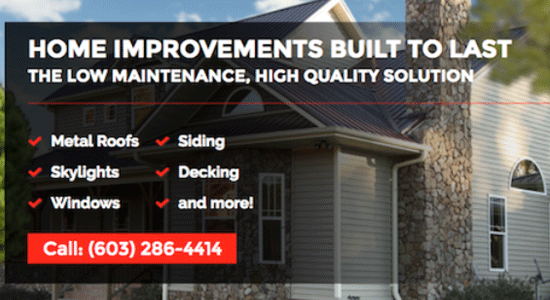Two warranties should be provided when you buy a roof.
1. The manufacturer covers the product’s integrity.
The second: Contractor covering the integrity and quality.
Contractors often take advantage of homeowners and shift the emphasis to the manufacturer’s warranty. The warranty covers the manufacturer’s control over the product, and contractors cover the contractor’s control over the quality.
It is crucial to select a quality manufacturer and an experienced installer.
Unique Roof Warranty
Keep in mind the different warranties for roofing when looking at guarantees. You expect a TV to last longer than the 1-year warranty, which is like the 3-year warranty on your car, and roofs can fail long before the warranty expires. It all comes down to the fine print.
Traditional shingle manufacturers have a reputation for failing before the warranty expires. They are looking for repeat customers, so they often include a coupon for another roof and their first one.
Product Warranty
Be wary of warranties from suppliers that are not manufacturers when you’re looking through product warranties. These warranties only cover the value of raw materials, not the final product, and they only cover the material performance and not the whole roof system for metal roofing. They are challenging to collect and ignore weather conditions like hail or wind damage.
The warranty provided by the manufacturer is crucial for quality products, and this warranty protects your investment and is often covered by the supplier’s warranty.
CALL US: (603) 286-4414 OR CLICK TO EMAIL
These are the questions you should ask manufacturers when researching them:
- What does the warranty cover, and what doesn’t?
- Do you have provisions for hail, wind, fade, chalk?
- What is the company’s past? Is it easy to reach them or difficult?
- Is the warranty prorated? If so, how is it calculated?
- Is the warranty transferable to other owners? What are the requirements, and how many times can it be transferred to future owners?
Here are details about our Classic Metal Roofing Systems Warranty. Find out if you can answer these questions. Your manufacturer will provide you with a product warranty covering several key areas.
Manufacturer’s Defects. Be sure to read the product warranties. They only cover manufacturer’s defects, not age-related problems. Many manufacturers do not offer these warranties. If the product fails because of “normal weathering conditions,” they are exempt from liability. Instead, search for warranties covering cracking, flaking, fade, granule losses, and other such issues.
Proration. Prorated roof warranties mean that you will receive less compensation if your roof fails or ages. This is logical because you only pay for the time the roof was in service. A typical non-prorated period is reduced by a constant percentage each year. We have seen many companies offer warranties with varying prorations.
Transferability: Some warranties do not transfer. Others transfer once or twice. Other warranties transfer if the home is being sold within the warranty period. According to the National Association of REALTORS report, manufacturers can capitalize on the average home selling every eight years. A warranty that includes one transfer reduces liability to 16 years while advertising a more extended period is possible.
Limitations & Exclusions. These are the things you need to be aware of:
- Is the warranty applicable to materials and labor, if needed?
- Is there a maximum amount of payout?
- Is the warranty required to be installed on approved substrates? What is the approved substrate if so?
Do you need ventilation?
- Is it capable of providing wind coverage, but not for tornadoes or hurricanes?
- Is there an exclusion for “normal weathering?” Is there a “normal weathering exclusion”?
Workmanship Warranties
- Your contractor will provide a warranty for the work done on your roof. This warranty should be requested in writing.
- It should specify what coverage is provided, how long it lasts, and what terms. For high-end products, we recommend a minimum of 2 years.
- The document should indicate if the transfer is possible to future owners. This is a rare situation, but you might be able to negotiate one transfer if your home is to be sold soon.
- Storm damage is a common reason for warranty-voiding, and storm resistance warranties may sometimes fall under the manufacturer’s warranty.
These questions can be answered:
- Do you receive a written, legal guarantee, or a verbal commitment?
- What warranty covers? What about Acts of God
- What is the term of the warranty? Is it transferable to future owners?
- How long have they been in the business?
- What does their warranty mean to them?
Need help with your analysis?
If you’re considering a roofing product, send over the warranty to We’re happy to look at your roof and help you determine its value for you and the future owners of your house.
You can always call us or contact us at any time. We help you find the best roof for your situation and home.



